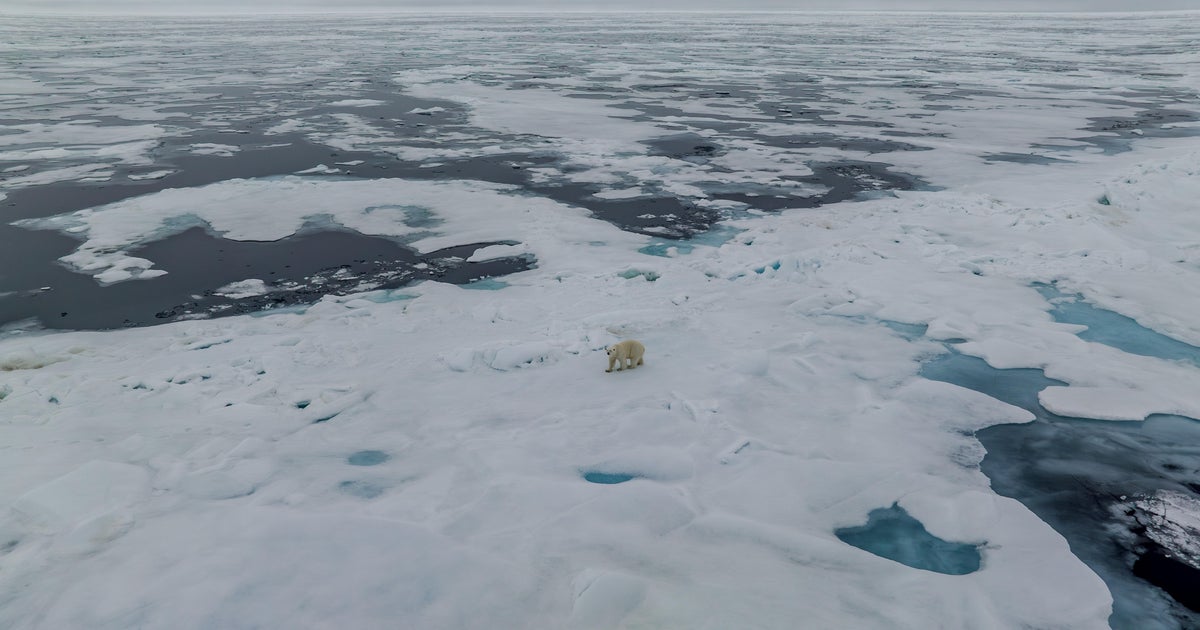
Could the Arctic be ice-free within a decade? What the latest science says
CBSN
The Arctic could be "ice-free" in just a few years, scientists have found. Here's what that means.
The region, which sits at the northernmost point of the globe, is a unique ecosystem characterized by areas of permanent snow and ice. But, if the Earth continues to face damaging levels of emissions, the Arctic could see "summer days with practically no sea ice as early as the next couple of years," a new peer-reviewed study out of the University of Colorado Boulder revealed.
"The first ice-free day in the Arctic could occur over 10 years earlier than previous projections," the study, that was published Tuesday, added.
More Related News
